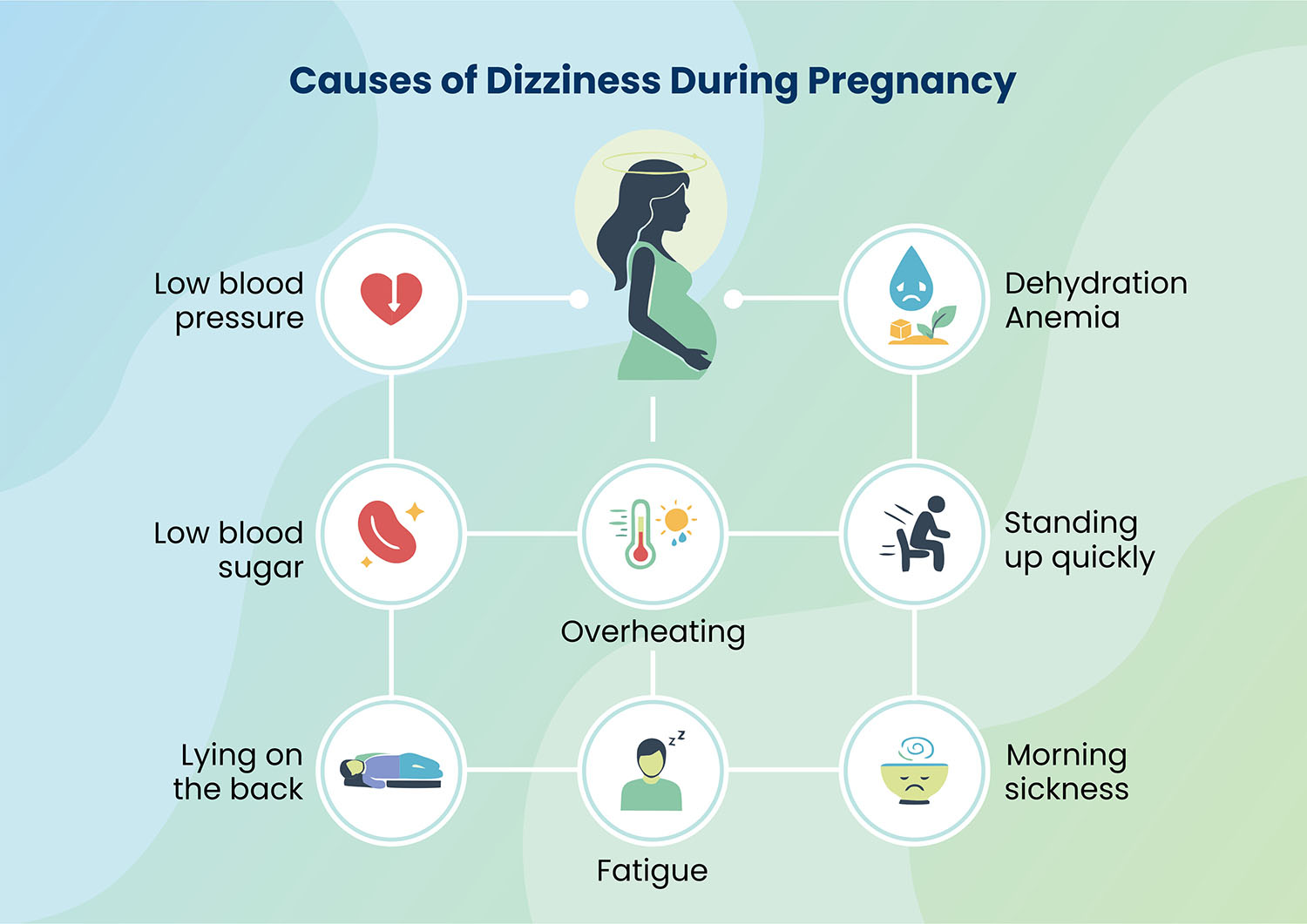Being pregnant is an experience of a lifetime, but sometimes it can be difficult to deal with situations when you suddenly feel off-balance or dizzy. But do not worry, you're not the only to-be-mom experiencing this. In a 2019 study, researchers found that feeling dizzy is something that many women have to go through during pregnancy.
It is usually normal to feel dizzy when pregnant, but it is considered to be more of a bother than a serious issue. However, it is important to see a doctor if you experience severe dizziness or fainting, or if it affects your daily lifestyle and basic everyday routine.
What is it exactly to Feel Dizzy When Pregnant?
The word "dizziness" in itself can describe different feelings at the same time. Some pregnant women describe it to be if everything is spinning, the same as a person feels in vertigo, while others might just feel lightheaded or wobbly.
Pregnancy dizziness generally means feeling a bit off-balance, like you are about to lose your balance. So, when a soon-to-be-mom tells you they are feeling dizzy or lightheaded, it means they might faint, so be cautious.
When Does it Start? Is it an early Sign of Pregnancy?
Yes, feeling dizzy is a common symptom in the early stages of pregnancy, especially during the first trimester, but it doesn't always have to mean that you're expecting.
At the beginning of your pregnancy journey, it is normal to experience morning sickness. This makes it difficult to drink enough fluids, leading to dizziness. Also, the increase in the levels of progesterone hormones during pregnancy can contribute to feeling dizzy.
As you enter the second trimester, hormonal changes are responsible for causing dizziness, but it often improves. However, if moving towards the third trimester still makes you feel dizzy, it could be due to anemia caused by a lack of iron. In such cases, do not hesitate to talk to your doctor about your situation.
Dizziness During Pregnancy by Trimester
First Trimester
Dizziness is a frequent occurrence early in pregnancy due to hormonal changes leading to widening of the blood vessels and drops in blood pressure. In addition, increased levels of progesterone slow blood flow to the brain, and this is why women will feel lightheaded after standing up quickly or not eating a meal. Morning sickness and dehydration can also exacerbate dizziness.
Second Trimester
As blood flow increases to accommodate the growing baby, some women can experience dizziness due to pressure on the blood vessels from their expanding uterus or low blood sugar between meals.
In addition, rapid position changes or lying flat on the back can cause reduced blood flow and lead to faintness. Hydration and regular, balanced meals can help prevent it.
Third Trimester
During late pregnancy, an enlarged uterus can press on major veins (such as the vena cava) and lessen blood return to the heart and brain, particularly when lying on the back. This has the potential to cause dizziness, weakness, or shortness of breath. One of the best tips is to sleep and rest on your left side, stand slowly, and avoid overheating to help with dizzy spells.

Causes of Pregnancy Dizziness
There are various reasons you might feel dizzy during your nine-month pregnancy journey. Here are some common causes:
- Hormonal changes: In early pregnancy, high levels of progesterone hormones can lower blood pressure, causing dizziness.
- Low blood sugar: Pregnancy demands a well-hydrated body with more nutrients. It becomes a little challenging to meet these needs due to morning sickness, which makes you feel dizzy.
- Dehydration: Nausea, vomiting, and frequent urination, especially in the first trimester, make your body dehydrated, leading to dizziness.
- Anemia: Common in the third trimester, low iron levels can cause dizziness, fatigue, and weakness.
- Rapid Movements: Quick movements or holding a position for too long, whether you are sitting, standing, or even sleeping, may lower blood pressure, resulting in dizziness.
- Overexertion: Physical pressure during pregnancy can make you feel dizzy. Listen to your body, take breaks, and stay hydrated. Drinking water can even help you sleep better.
Preventive Measures for Dizziness During Pregnancy
- Try to avoid wrong sitting postures and standing for too long. If you do not have any other option apart from standing, keep moving your feet to boost blood flow.
- Get up slowly when sitting or lying down, especially when you wake up in the morning or want to rush to puke.
- Have a healthy diet throughout your pregnancy journey to avoid complications. Also, keep munching on healthy snacks within intervals to prevent long gaps between meals.
- Try avoiding hot baths or showers.
- Try not to lie on your back once you're midway through your second trimester. Using a pregnancy pillow is always recommended by professionals for the required support.
- Wear loose and comfy clothes to help with circulation.
When Should You See a Doctor for Pregnancy Dizziness?
Feeling dizzy or lightheaded occasionally is normal during pregnancy. Your body is undergoing numerous changes, and your heart is working harder due to the increased blood volume.
However, if your dizziness gets worse or if you experience severe symptoms like blurry vision or difficulty breathing, it's important to let your doctor know. And if you ever feel dizzy while driving, make sure to pull over and stop right away.
Final Thoughts
Pregnancy brings along various uncomfortable symptoms, and dizziness is common for many women. Usually, it's not a big concern. Even though most symptoms are normal, they can provide important clues about the health of both the mom and the baby.
Sometimes, dizziness might indicate a hidden issue. That's why it's essential to keep the doctor informed about any symptoms or health concerns that come up during pregnancy.













